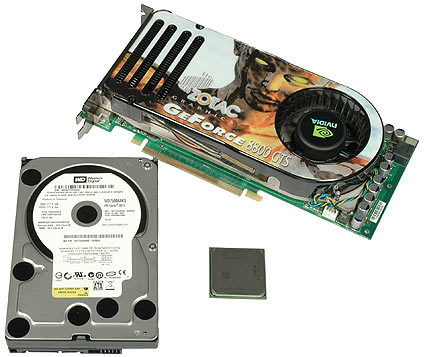Is Your PC Ready for a System Update?
Dispose Or Recycle? How To Spend Your Upgrade Money
Okay, you've been using your Athlon 64 system for more than two years, and by now you've heard a lot about dual core and quad core processors, and about how fast and energy-efficient computers should be. At the time you bought your current system you insisted on getting PCI Express and proper components such as an AMD Athlon 64 - it was the best of its class back in late 2005. But now you are beginning to wonder what the benefit of a brand new system might be.
Everyone talks about Intel's Core 2 Duo, terabyte hard drives and graphics hardware that is three generations ahead of yours. Is your system still good enough? Does it make sense to buy a new PC today? Or could a simple component upgrade provide similar benefits? The answer probably depends on how much you can afford to spend.
While there were convincing reasons for upgrading your system in the past - mainly software with tremendous hardware requirements - progress in hardware development has been more substantial in recent years. Processors and graphics cards are many times faster than they were a few years ago, which means that even an entry-level processor costing well below $100 will give you sufficient performance to take on everyday workloads. A mainstream graphics card at around $200 is capable of coping with most of today's 3D game titles at decent resolutions and in high quality.
I can very well remember times when you had to go with the fastest processor or graphics card to get sufficient performance for your desired applications. This is sometimes still the case today, but mainstream systems are usually able to handle most mainstream software. Even so, there is good reason to upgrade today, because certain upgrade paths won't stay open forever.
Join our discussion on this topic
Get Tom's Hardware's best news and in-depth reviews, straight to your inbox.
Current page: Dispose Or Recycle? How To Spend Your Upgrade Money
Next Page Our Reference System: Two Years Old
Patrick Schmid was the editor-in-chief for Tom's Hardware from 2005 to 2006. He wrote numerous articles on a wide range of hardware topics, including storage, CPUs, and system builds.
